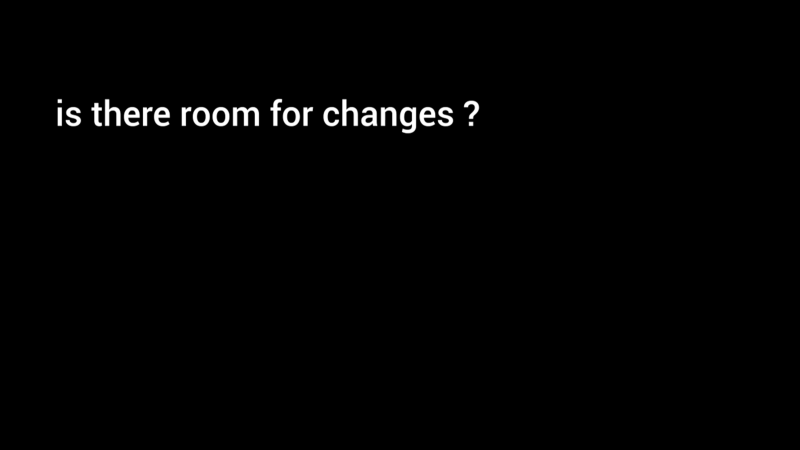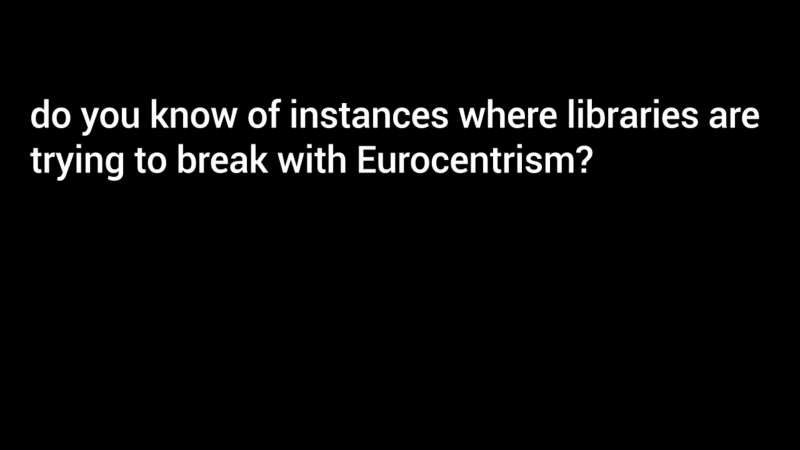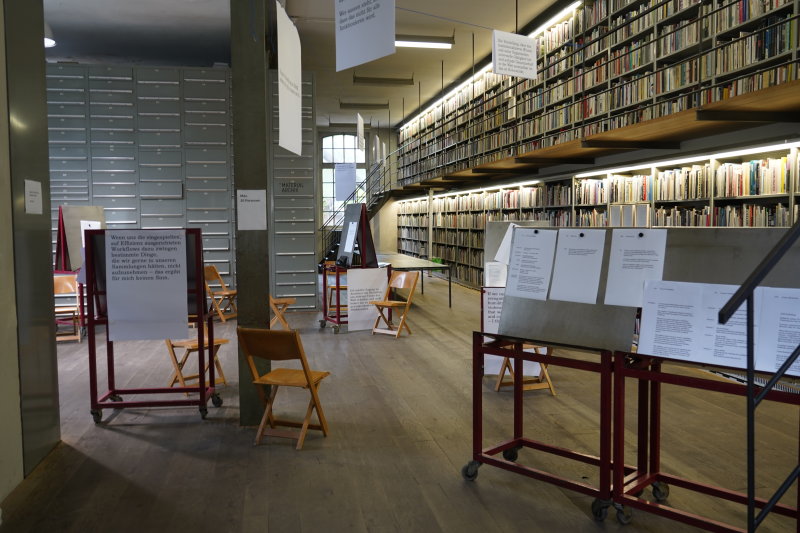Weiterbauen – Ausbau Kunstbibliothek/Werkstoffarchiv
Weiterbauen – Ausbau Kunstbibliothek/Werkstoffarchiv
Stiftung Sitterwerk
Sittertalstrasse 34
CH-9014 St.Gallen
+41 71 278 87 09 (MO–FR)
+41 71 278 87 08 (Sonntag)
post@sitterwerk.ch
Öffnungszeiten:
Montag bis Freitag, 9–17 Uhr
Sonntag, 14–18 Uhr
Samstag geschlossen
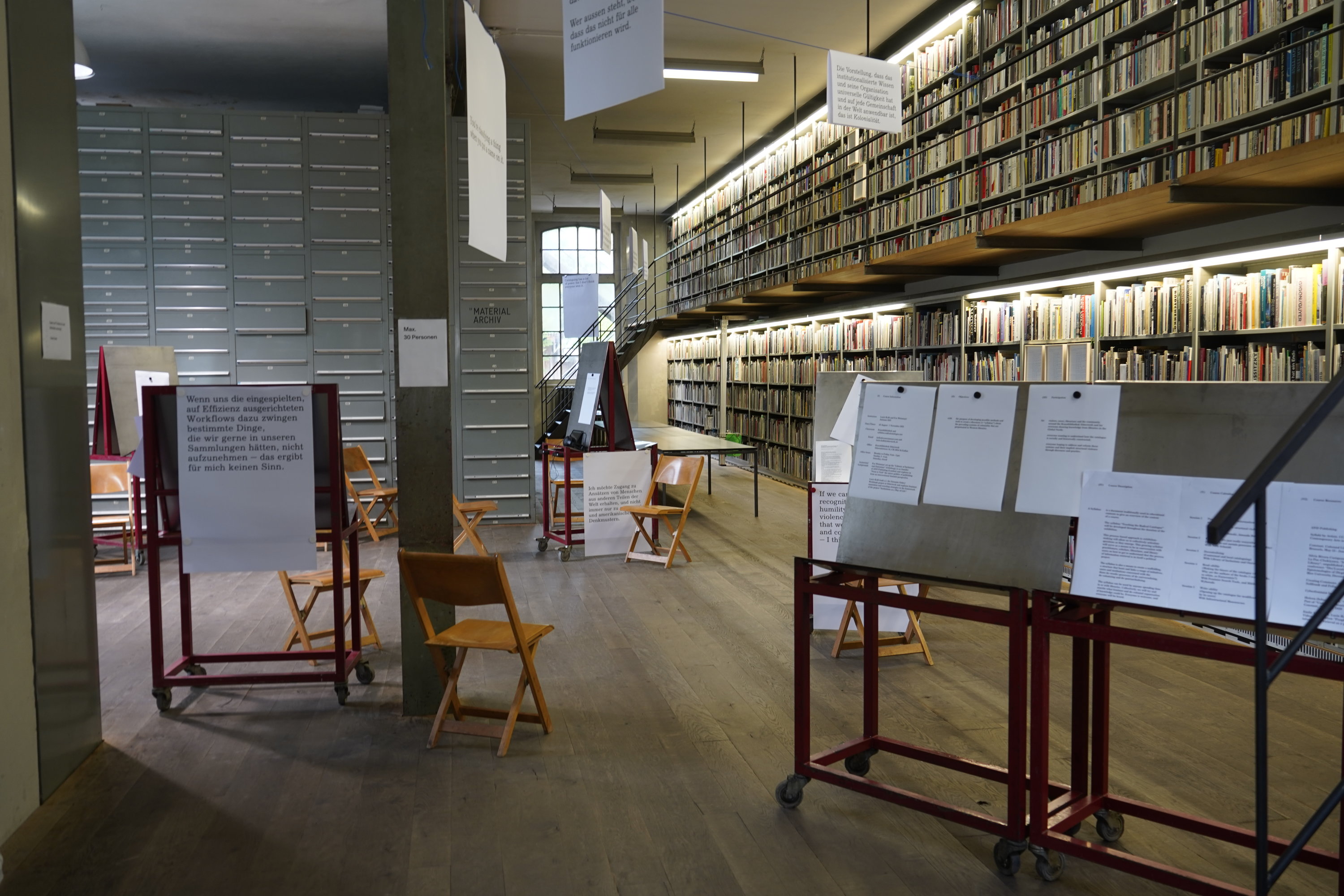
The exhibition «Reading the Library» developed from the workshop series Art Production Language, which dealt with the topic of keywords and brought up fundamental questions about ethical and political aspects of knowledge organization. These questions were followed up in the exhibition: what is a library's responsibility; how does it position itself; in what discourses does it place itself? Whose selection do we search in a library; in whose narrative are its contents embedded; and whose system are we following when doing a search? Who makes and maintains the entries in the catalogue, and what considerations and principles influence the decisions associated with this? How could we conceptualize a catalogue that considers these questions and at the same time tells users what is in the library and what isn't?
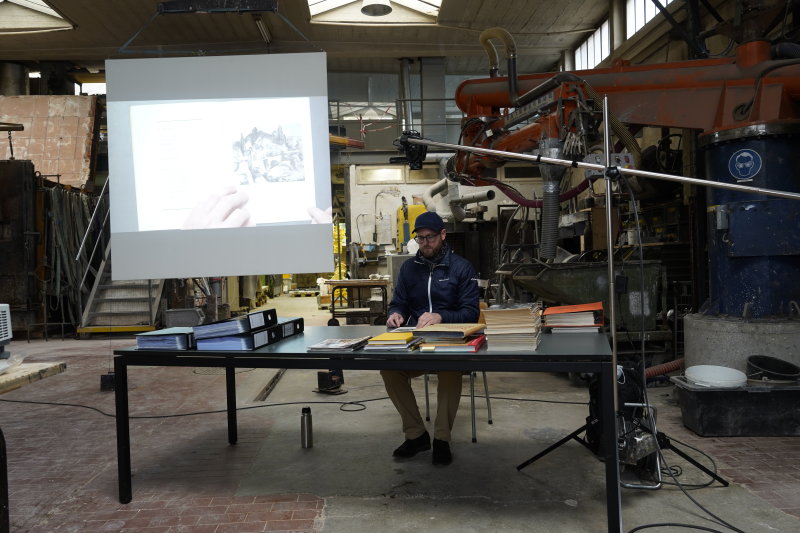
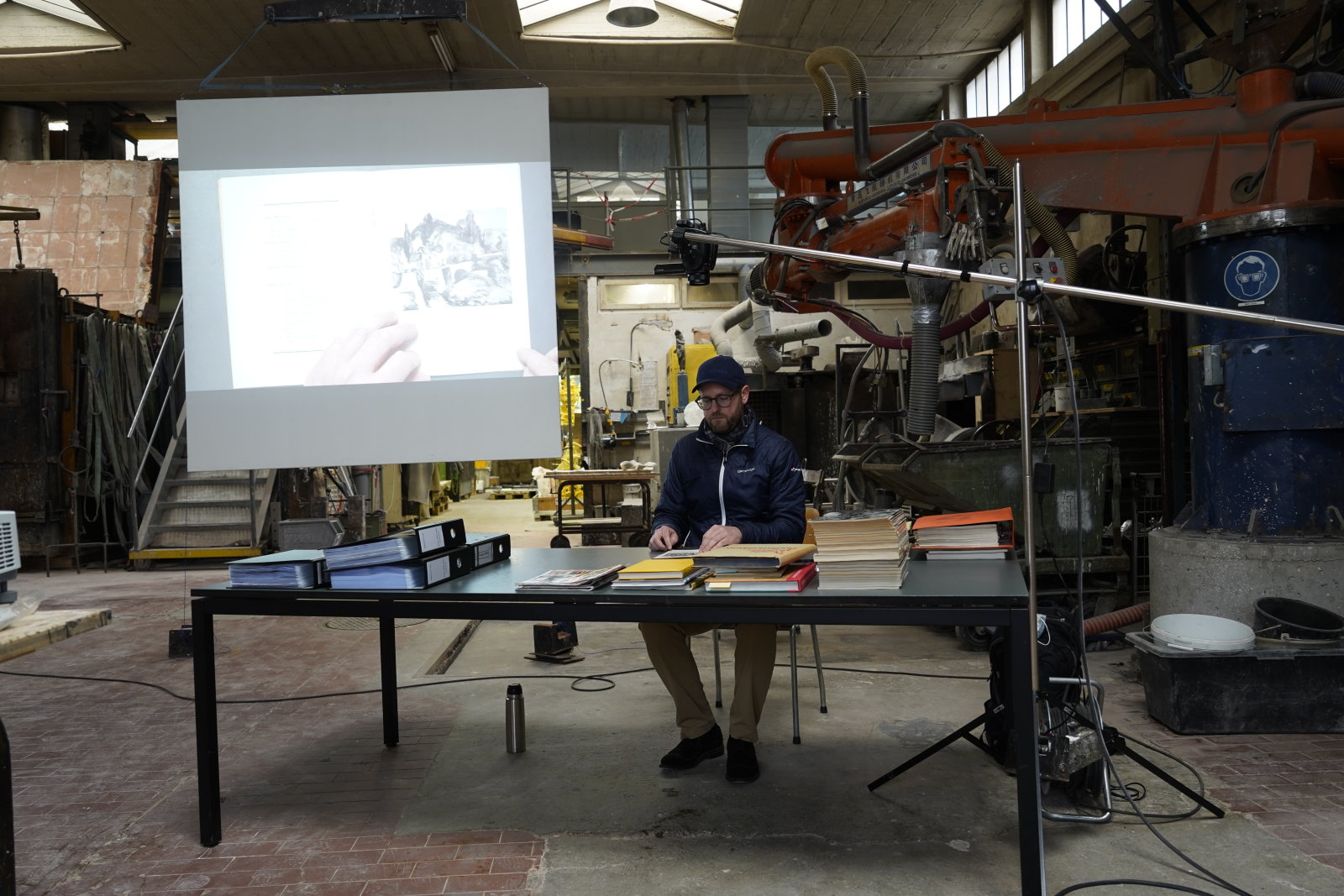
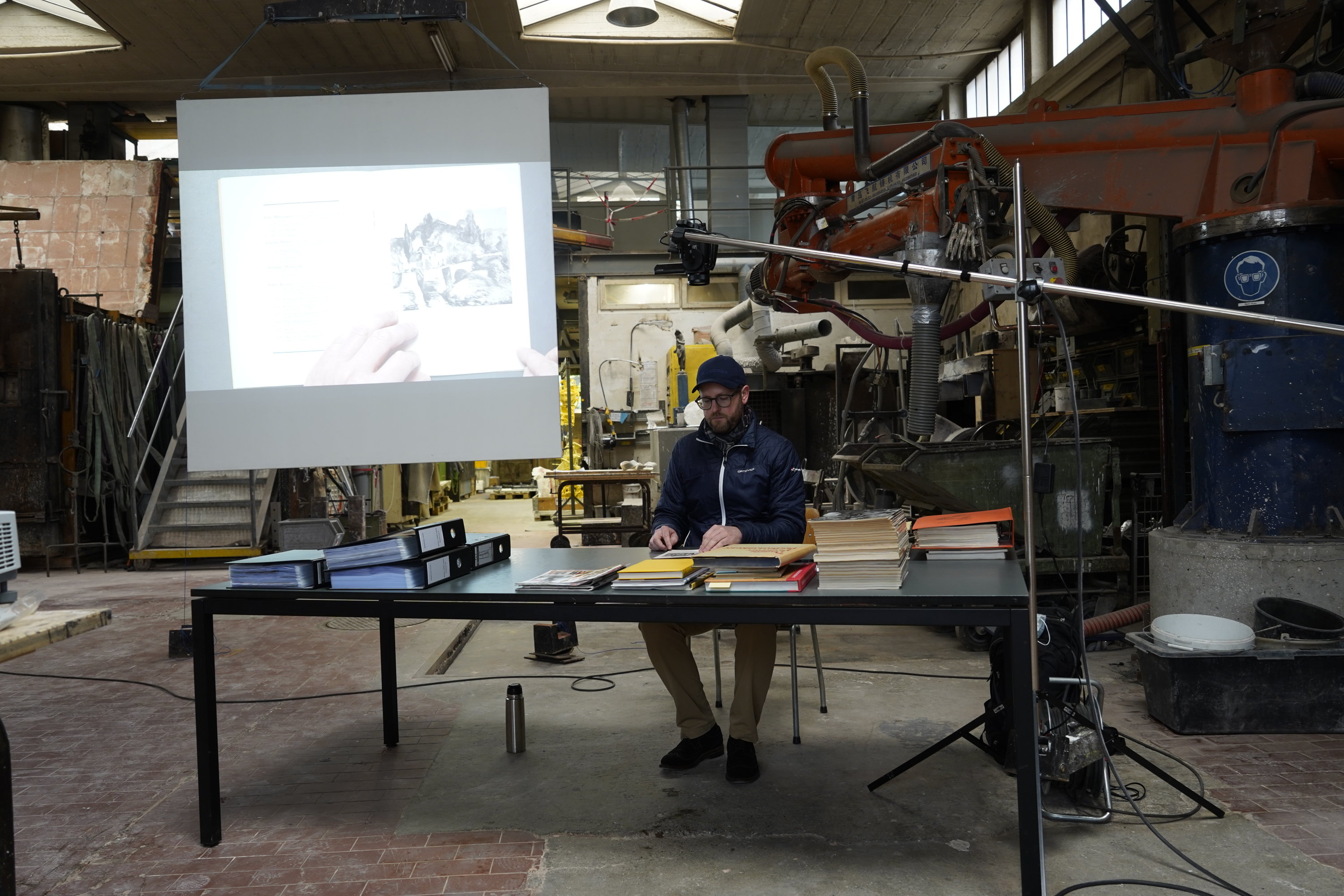
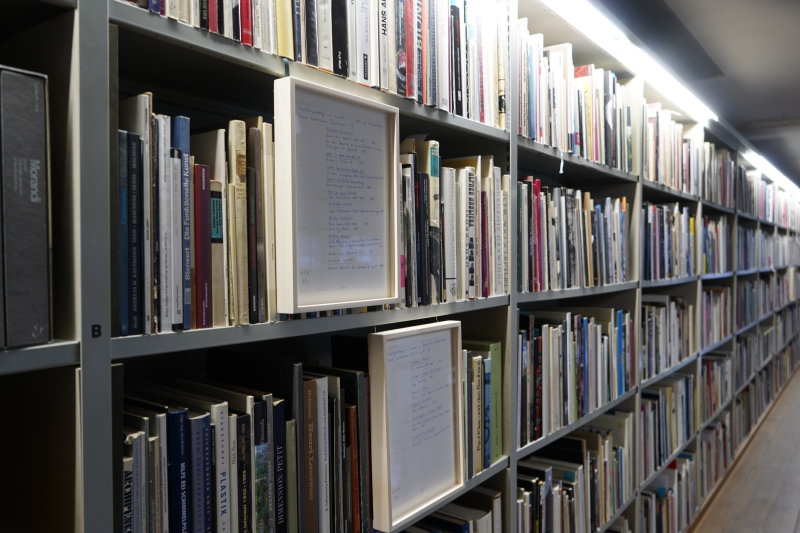
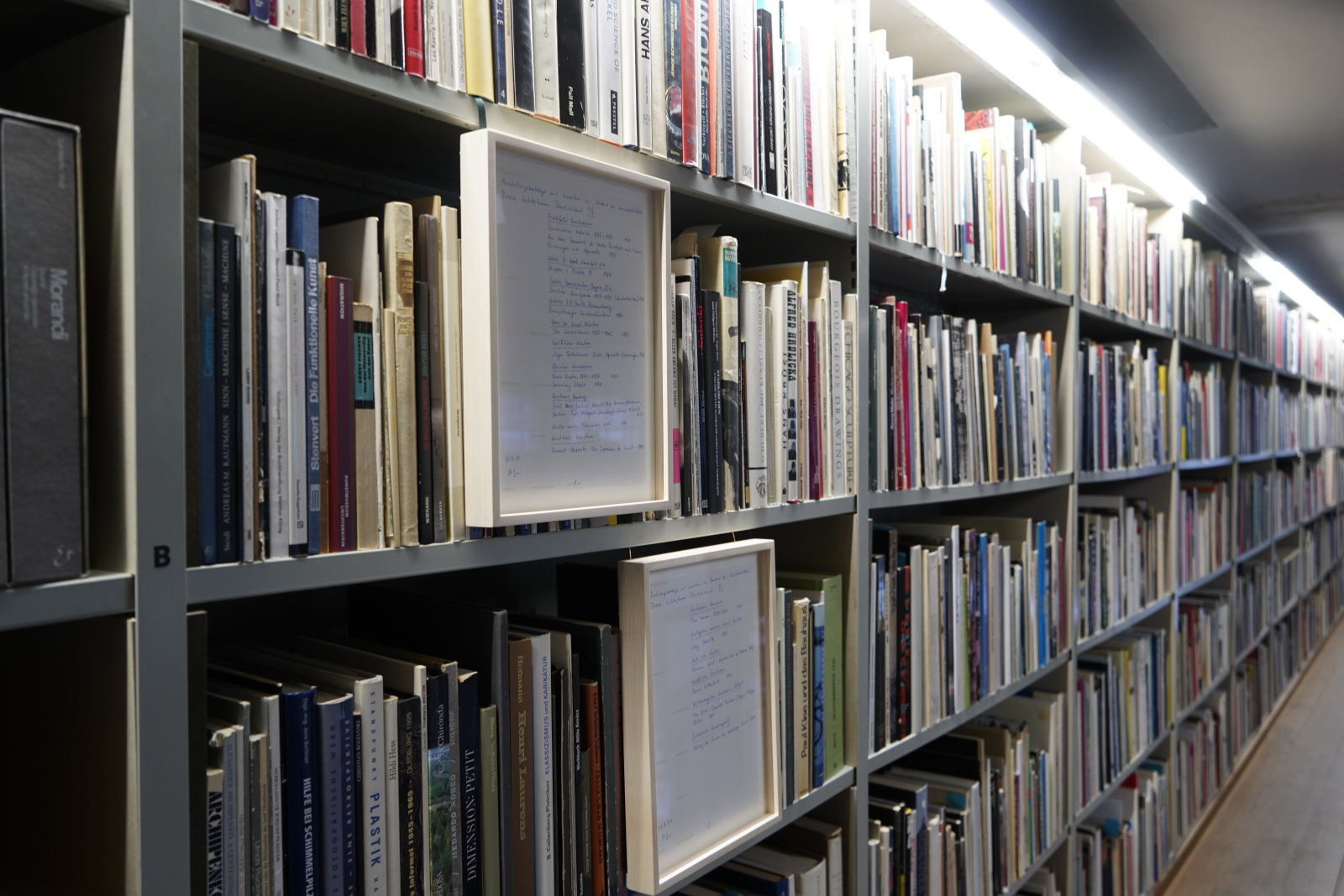
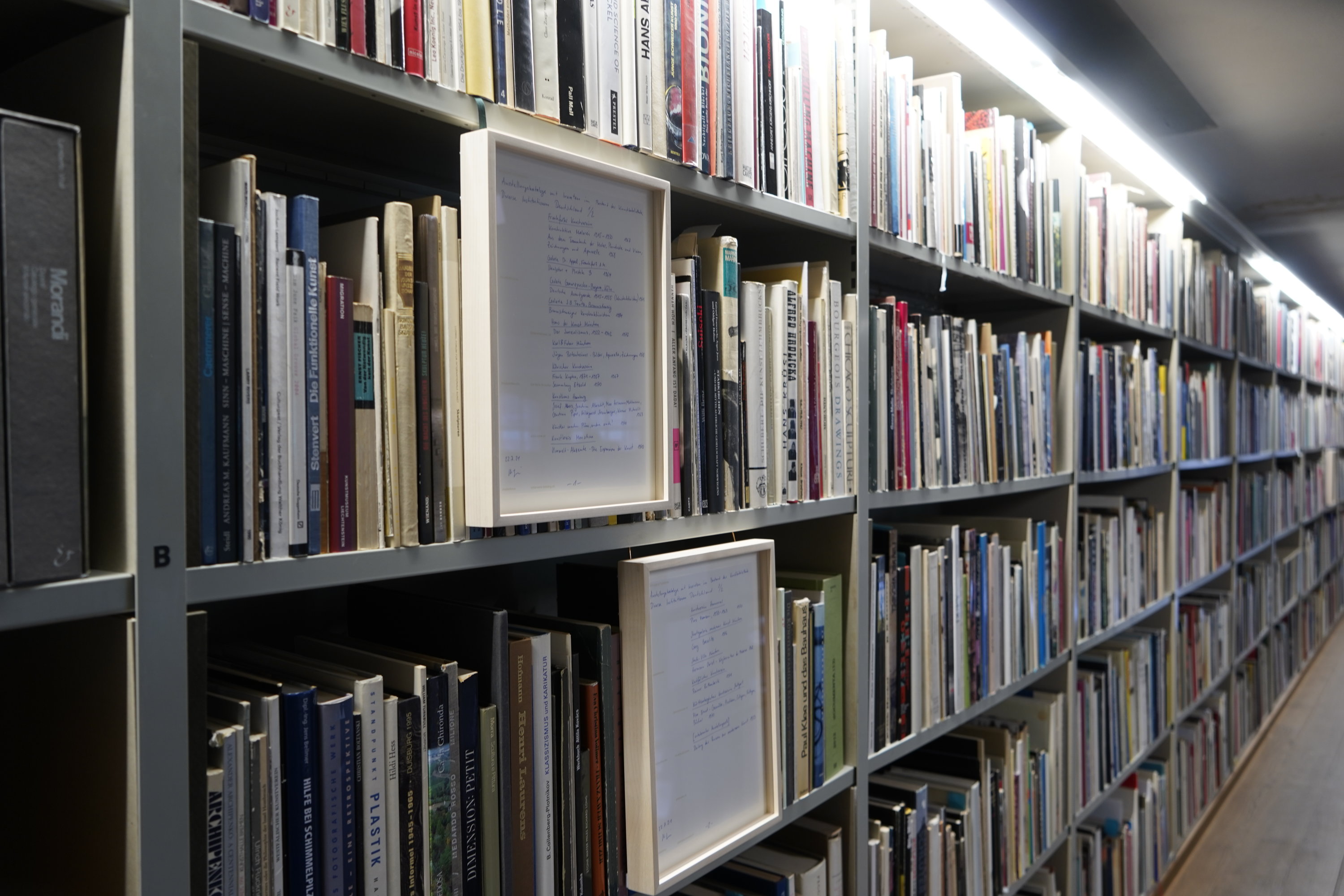
These questions were explored in artistic contributions and event formats. The focus was on depicting and documenting research and search processes. Initiated by his stay in our guest room, Matthias Gabi approaches the topic by searching the holdings of the art library for books that contain advertisements.
He summarizes his search in a handwritten list of results that is reminiscent of pre-modern library catalogues. His contribution asks what possibilities there are in the catalogue to search books systematically for their context, their funding, their broader circumstances.
The contribution by Delphine Chapuis-Schmitz is also based on her stay in our guest room. During the exhibition, she worked on a literary text, which she performed at the finissage. She is interested in a search that escapes the catalogue's meta-descriptions in the sense that it starts directly with the books' content, with individual sentences and statements. She picks quotes from different books and combines them into a new text. It is thus no longer the catalogue that opens the gate into the world of books but rather a subjectively compiled collage of quotes that has a literary value of its own. By doing so, Delphine Chapuis-Schmitz raises awareness of the fact that the catalogue is always subjective and looks for a way to make this fact visible.
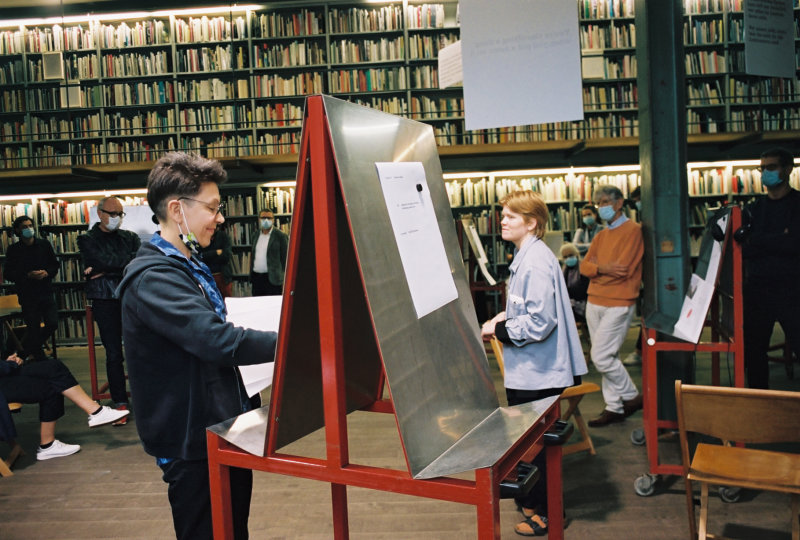
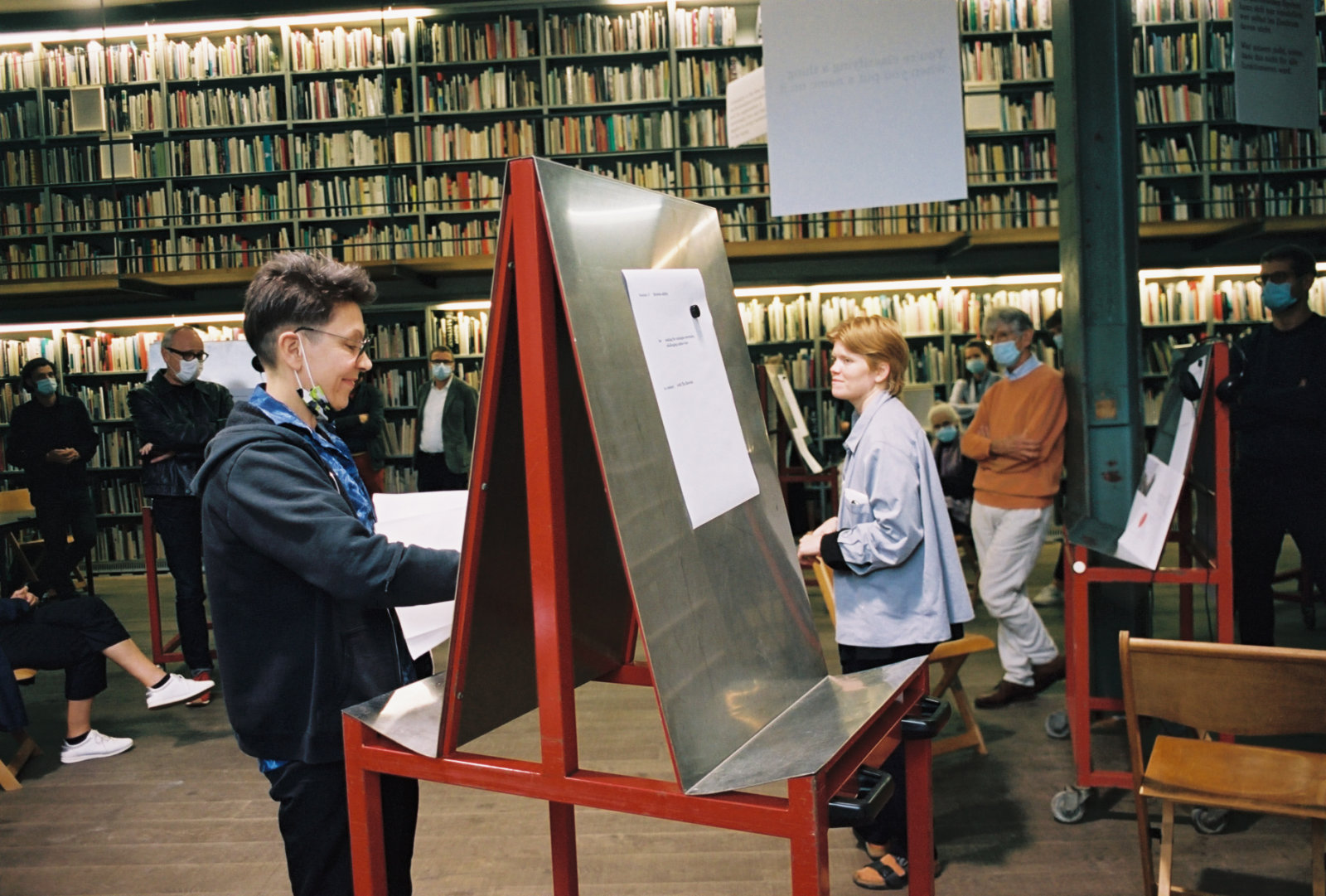
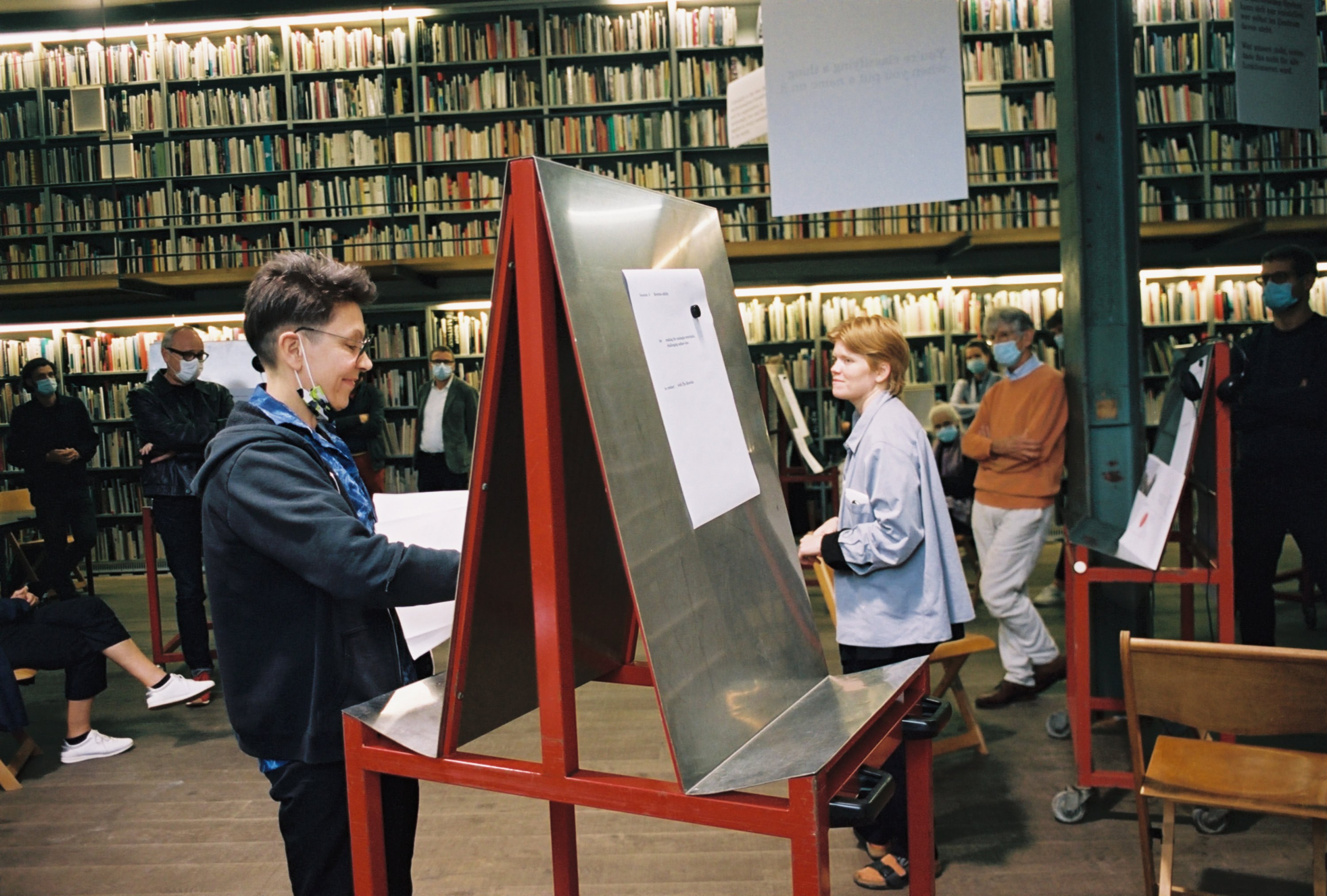
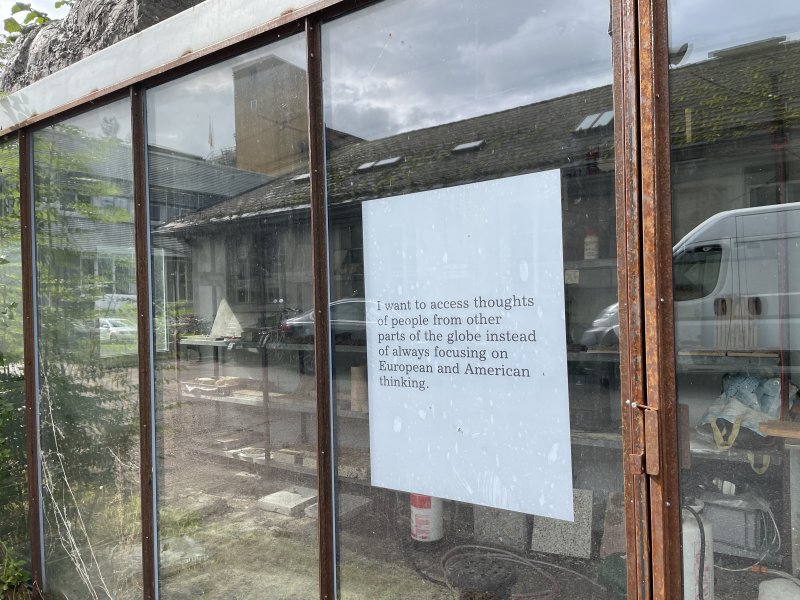

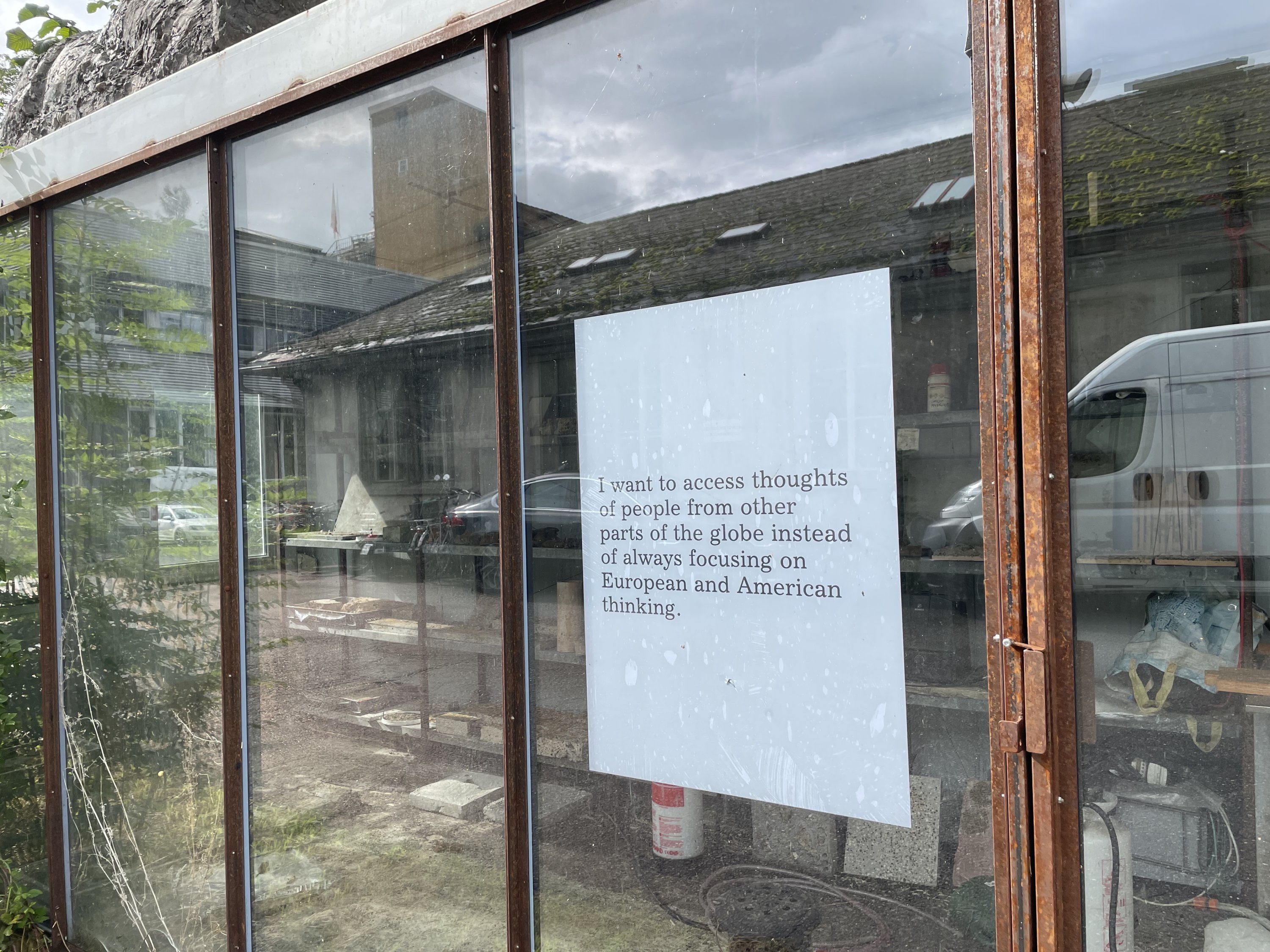
Based on the workshop series Art Production Language, artist Eva Weinmayr, in collaboration with Lucie Kolb, composed the seminar «Teaching the Radical Catalogue» about the library catalogue. The seminar's objective is to identify the different factors that govern our search in the catalogue and to point out methods that question conventional classification systems, break them up, make them dynamic and personalize them. The seminar discusses different aspects in 8 sessions: the first session describes how information retrieval is not a neutral, technical act but rather influenced by social and political factors; the second session points to the colonial heritage of libraries in the Global North, which still needs to be subjected to decolonialisation; the third session is dedicated to the possibilities and potentials of alternative local libraries and archives; sessions four, five, six and seven emphasize that the same is also true for the library catalogue's infrastructure. The sessions combine experiments and approaches from different collectives (Feminist Search Tools, Infrastructural Manoeuvres, The Rewrite, Constant) that scratch at the surface of the library catalogue's infrastructure. These collectives are working on exposing the technological foundation, the requirements for naming and categorizing as well as the authority and the privilege of those who catalogue. They are developing tools to make the catalogue more permeable in order to enable users to raise objections, rewrite the catalogue, change it and have a say in it.
The exhibition «Reading the Library», curated by Barbara Biedermann, Lucie Kolb and Eva Weinmayr, was hosted in the Sitterwerk's art library and material archive from 29 August to 7 November 2021. Its polyphonic contributions have sparked an exchange of knowledge not only between users and visitors of the library but also from users back to the art library and material archive themselves. Including various international archives has helped to contextualize the Sitterwerk's experimental approaches within an international network of collections in the art field and has opened up new thematic fields and partnerships, which we will continue to deepen in 2022. Active networking in particular – with other archives and specialists who are investigating alternative knowledge systems, uses of collections or working methodologies – enriches the further development of our experimental approaches «Dynamic Order» and «Werkbank». We will follow up on these in 2022 by experimenting with our catalogue, exploring unconventional search functions and enriching our index with additional information. By doing so, the art library and the material archive, with their proximity to the workshops of the Kunstgiesserei art foundry, will be a point of reference for questions relating not only to practical knowledge and research on materials, art and production processes but also to critical discourses about classification systems in libraries.
